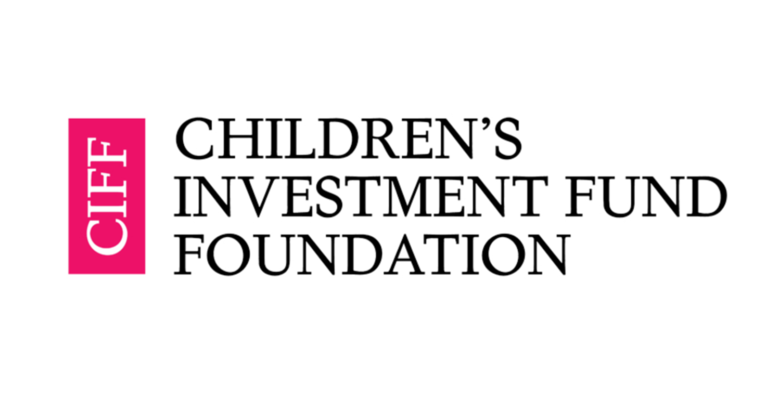By Haruna Gimba
The Children’s Investment Fund Foundation (CIFF), in partnership with the Global Fund to Fight AIDS, Tuberculosis and Malaria (the Global Fund), announced at the 25th International AIDS Conference an initiative of up to $2 million.
The fund for over the 2024-2025 period for the purchase of approximately 150,000 dapivirine vaginal rings in countries that implement Global Fund grants to fight HIV and AIDS. The PrEP ring is a long-acting HIV pre-exposure prophylaxis (PrEP) option for women.
In 2022, 1.3 million people acquired HIV, far from the target of ending HIV and AIDS by 2030.
Expanding access to PrEP and other prevention tools, along with increasing treatment coverage and viral load suppression, is crucial in preventing new infections and breaking the cycle of transmission.
The PrEP ring is designed to help reduce women’s likelihood of acquiring HIV during vaginal sex.
“The PrEP ring gives women and girls a discrete option that is entirely within their control,” said Miles Kemplay, Executive Director, Sexual and Reproductive Health and Rights (SRHR), CIFF.
“For too long price points have made this option inaccessible – this partnership is the first step in making the market more sustainable and increasing access for those who need it.”
The PrEP ring is manufactured by Sever Pharma Solutions in Sweden for the Population Council. A next-generation PrEP ring lasting three months will soon be under regulatory review.
The partnership between CIFF and the Global Fund, which will kick off in October, aims to support early product introduction to seed the market for wider adoption of the PrEP ring.
In collaboration with other partners, including Unitaid, it also aims to bridge the gap to a lower-cost, three-month PrEP ring and/or an African-manufactured PrEP ring, which will lead to lower prices over the long-term.
The one-month ring currently costs $12.8/month of use. The initiative announced today will create a bridge to the three-month PrEP ring, which will cost less than $16, excluding distribution, representing a nearly 60% drop in price per month. Several opportunities for further price reductions have been identified and are being explored.
“In many areas of the world, the rate of new HIV infections among adolescent girls and young women is more than three times the rate among adolescent boys and young men,” said Peter Sands, Executive Director of the Global Fund.
“This is unacceptable. We are convinced that this new PrEP ring can have a revolutionary impact. Girls and women have spoken up that they want the PrEP ring, and today’s announcement is one more stepping stone in a series of innovative approaches to give it to them.”
“We applaud CIFF and the Global Fund for their continued commitment to purchasing DapiRing,” said Bríd Devlin, Chief Scientific Officer at the Population Council’s Centre for Biomedical Research.
“It is critical that women are offered a range of HIV prevention methods, including DapiRing, to meet their diverse sexual health needs and to use on their own terms. Providing women with choice in HIV prevention is the best way to end the AIDS epidemic.”
Increasing HIV prevention options, like the PrEP ring, is a key demand of advocacy groups and a core component of the HIV Prevention Choice Manifesto for Women and Girls in Africa.
“The ring is a powerful tool that is revolutionary as the first approved, long-acting prevention tool, particularly for women and adolescent girls, who often cannot negotiate condom use and find the pill burden of oral PrEP not discrete enough,” said Yvette Raphael, Executive Director of Advocacy for Prevention of HIV and AIDS (APHA) in South Africa and Chair of the African Women Prevention Community Accountability Board.
“It gives women and girls another option to choose from. HIV prevention choice is very important, and making the ring available for young women is our duty.”
Since last year, the Global Fund has enabled procurement of the PrEP ring in Cambodia, Eswatini, Ghana, Indonesia, Mozambique, Uganda and South Africa. Procurement in Mozambique and Uganda was supported in part by CIFF’s PrEP Matching Fund.
The next few years will be revolutionary for HIV prevention. Post-exposure prophylaxis (PEP) is getting more attention, and WHO will release new guidance on this at the International AIDS Conference.
“The Global Fund is committed to drive equitable access to quality assured and affordable HIV prevention tools and is working with partners and the industry to shape and create a sustainable market, including injectable lenacapavir,” said Hui Yang, Head, Supply Operations at the Global Fund.
The PrEP ring has received a positive opinion from the European Medicines Agency (EMA). So far, regulatory authorities in Botswana, Eswatini, Kenya, Lesotho, Malawi, Namibia, Rwanda, South Africa, Uganda, Zambia and Zimbabwe have approved the PrEP ring, and other countries have regulatory submissions under review.
The World Health Organization (WHO) has recommended the PrEP ring since 2021 as an additional prevention choice for women at substantial risk of HIV infection as part of a combination prevention approach.
“There’s a lot of excitement and work to do to make sure that we shorten introduction timelines and support equitable access to these products in order to achieve the 2030 targets,” said Vuyiseka Dubula, Head of Community, Rights & Gender at the Global Fund.
The Global Fund and CIFF have partnered to fight HIV since 2015 when CIFF pledged US$10 million to support paediatric HIV treatment and expand access to treatment in Zimbabwe and Kenya. In 2019, CIFF and the Global Fund launched a US$25 million catalytic investment to scale up access to HIV self-tests in Cameroon, Mozambique, Nigeria, Tanzania and Uganda.
In 2022, CIFF pledged US$33 million to the Global Fund to support accelerated access to PrEP and PEP for populations that need it most in Kenya, Mozambique, Nigeria, South Africa, Uganda and Zambia.




